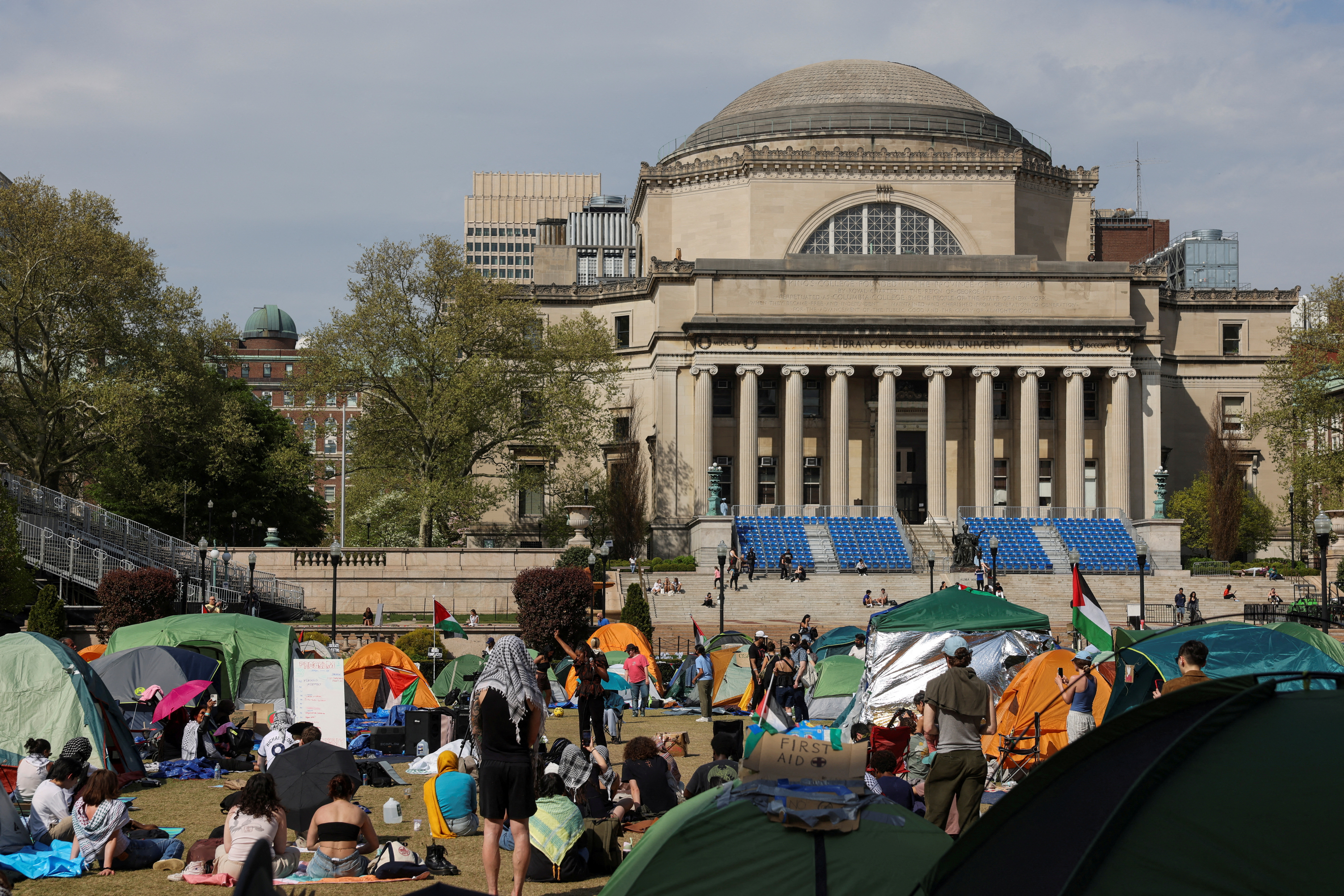Columbia University’s President, Nemat Minouche Shafik, announced on Monday that discussions between student protesters and academic leaders regarding the dismantling of a pro-Palestinian encampment on campus had reached an impasse. The encampment, erected to protest Israel’s actions in Gaza, has been a focal point of tension on the Ivy League campus.

Unresolved Demands and Ultimatums
Despite days of negotiations, President Shafik stated that Columbia would not comply with the protesters’ primary demand for divestment from assets supporting Israel’s military. Instead, the university offered investments in health and education in Gaza and pledged to enhance transparency in its financial holdings. The protesters, however, remain resolute in their demands, which also include transparency in Columbia’s finances and amnesty for disciplined students and faculty.
In response, Columbia issued a warning to protesters, stipulating that those who did not vacate the encampment and acknowledge their participation by a specified time would face suspension from school. Even those who complied with the directive would be placed on disciplinary probation until June 2025 or their graduation, as per the university’s letter.
Student Resistance and Escalating Actions
The Columbia Student Apartheid Divest coalition denounced the university’s ultimatum, vowing to stand firm until their demands were met or they were forcibly removed. They condemned the university’s threat of suspension, emphasizing the severity of the Palestinian conflict compared to the disciplinary measures proposed by the administration. President Shafik’s decision to involve law enforcement two weeks earlier in dismantling the encampment had sparked a backlash from students, faculty, and external observers. Despite efforts to negotiate a resolution, the situation remained deadlocked, prompting Columbia to impose deadlines and disciplinary consequences.
Global Demonstrations and Growing Concerns
Protests at Columbia and various U.S. universities continued over the weekend, with arrests and clashes between opposing factions at several campuses. The escalation of demonstrations has drawn criticism from civil rights groups, particularly regarding police intervention and alleged use of excessive force. Similar protests have emerged internationally, including at McGill University in Montreal and the Sorbonne University in Paris. McGill University reported an increase in pro-Palestinian encampments on its campus, while the Sorbonne witnessed the evacuation of protesters expressing solidarity with Gaza.

As tensions persist both domestically and abroad, universities grapple with the complexities of balancing free expression with maintaining campus safety and upholding institutional values. The global wave of protests underscores the depth of sentiment surrounding the Israeli-Palestinian conflict and its reverberations within academic communities worldwide.
